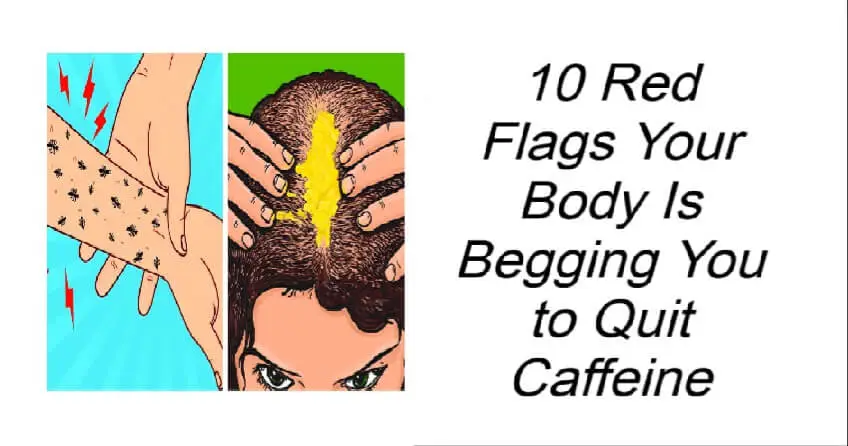10 Red Flags Your Body Is Begging You to Quit Caffeine
Caffeine might give you an energy boost, but for some, it causes more harm than good. If you’ve been feeling off without knowing why, your coffee habit could be the reason. Many people overlook the subtle signs of caffeine intolerance until they become impossible to ignore.
Disclaimer: This content is for informational purposes only and is not a substitute for medical advice. Consult your doctor regarding your health concerns.
1. Headaches
Caffeine affects blood vessels in the brain, causing them to constrict. When caffeine levels drop, these vessels expand again, which can trigger headaches or even migraines. Regular coffee drinkers may experience withdrawal headaches if they suddenly cut back. Caffeine can also dehydrate the body, another common cause of headaches.
2. Dry, Flaky Scalp
Caffeine’s dehydrating effects don’t just impact your body—they can also dry out your scalp, leading to flakiness and discomfort. If your hair seems drier or less full than usual, caffeine could be playing a role.
3. Restless Legs
If your legs feel jittery or restless after coffee—especially at night—caffeine might be overstimulating your nervous system. Since caffeine stays in your system for hours, even an afternoon coffee could affect your sleep.
4. Midday Energy Crashes
Caffeine gives you a quick energy boost, but for some, it leads to extreme crashes a few hours later. This happens because caffeine spikes adrenaline and blood sugar, which then drop suddenly, leaving you drained and desperate for another cup.
5. Frequent Stomach Issues
Caffeine can irritate the gut lining, causing bloating, cramps, or diarrhea. If you often experience digestive discomfort after drinking coffee, switching to decaf or herbal alternatives might help.
6. Constant Thirst
Even if you drink plenty of water, caffeine’s dehydrating effects can leave you feeling parched and low on energy. If you’re always thirsty despite hydrating, cutting back on caffeine might restore your body’s balance.
7. Coating on Your Tongue
Caffeine’s acidity can lead to a greenish coating on your tongue, signaling digestive issues or an imbalance in mouth bacteria. If you add a lot of sugar or flavored syrups to your coffee, you may also develop geographic tongue, a condition that causes irritation and discoloration.
8. Swelling
Some people have an intolerance or mild allergy to caffeine. Their immune system reacts by releasing histamine, causing swelling or puffiness. If your morning coffee leaves you feeling bloated instead of energized, caffeine sensitivity may be to blame.
9. Increased Anxiety
Caffeine stimulates the nervous system, which can trigger feelings of anxiety or restlessness. If you feel jittery or overwhelmed after drinking coffee, your body might be telling you it’s had enough. Reducing caffeine can help calm your nervous system.
10. Muscle Twitches or Spasms
High caffeine intake can throw off electrolyte balance, leading to muscle twitching—especially in the hands, legs, or eyelids. Cutting back and staying hydrated can help prevent these involuntary contractions.
If you recognize any of these symptoms, consider adjusting your caffeine intake to see if you feel better. Your daily coffee should fuel you—not leave you feeling worse!
You’ve just read, 10 Red Flags Your Body Is Begging You to Quit Caffeine. Why not read Manager Had To Hire A New Employee.

